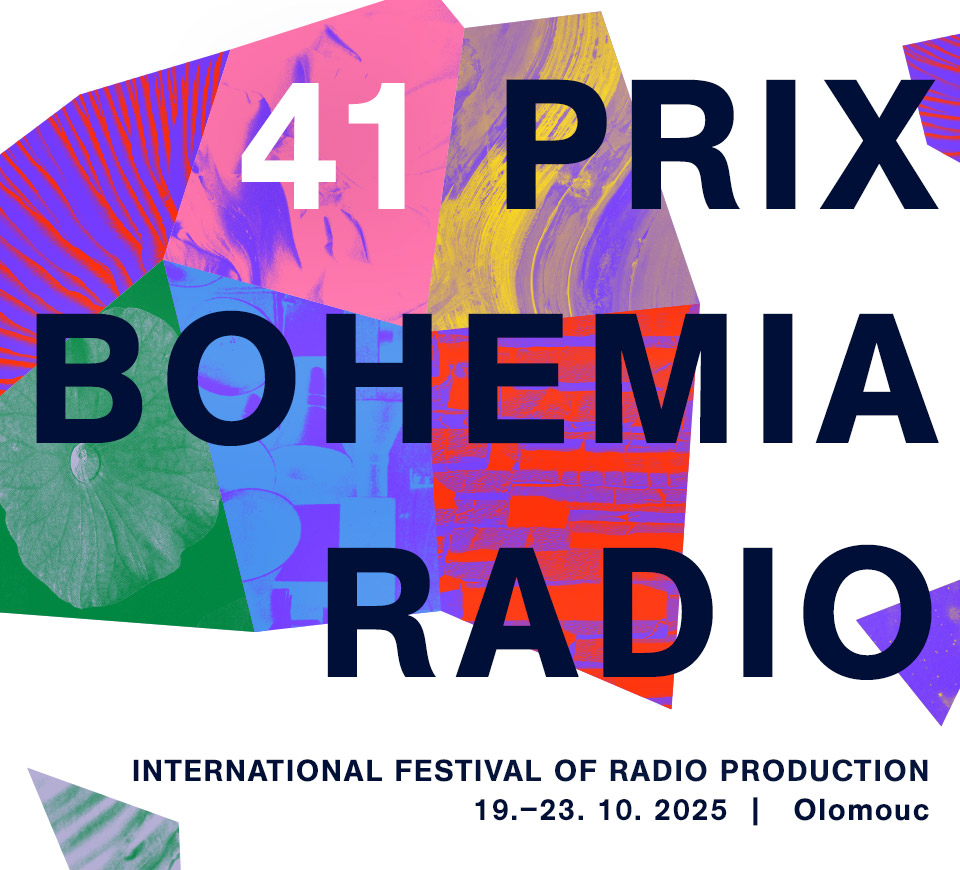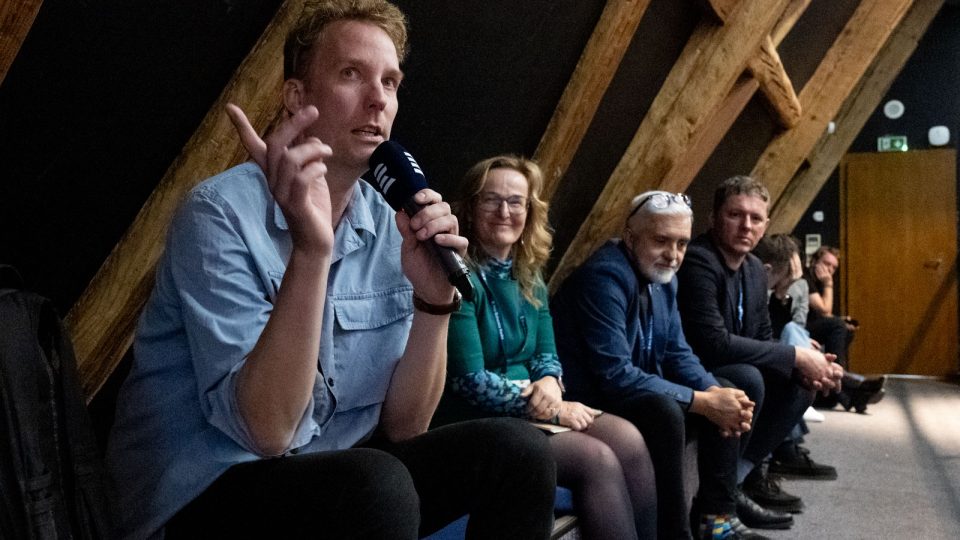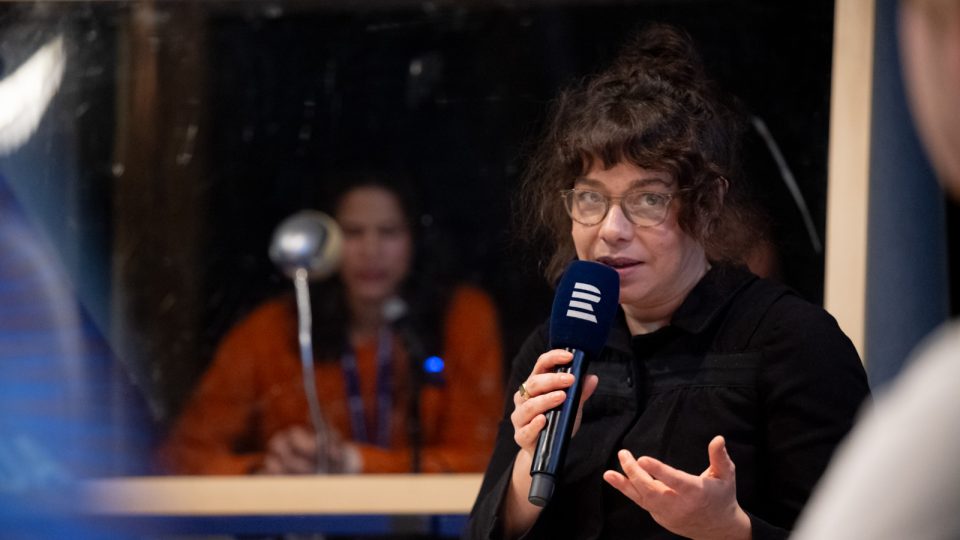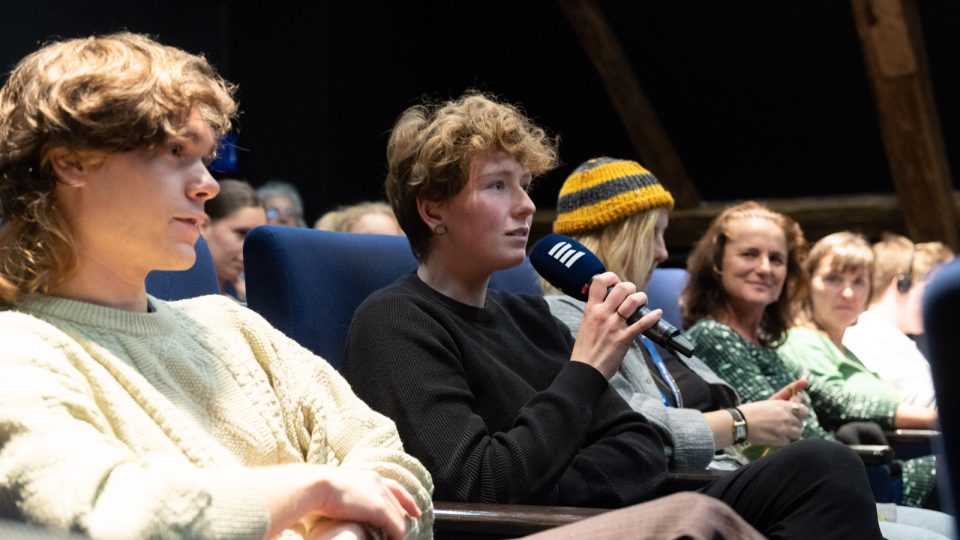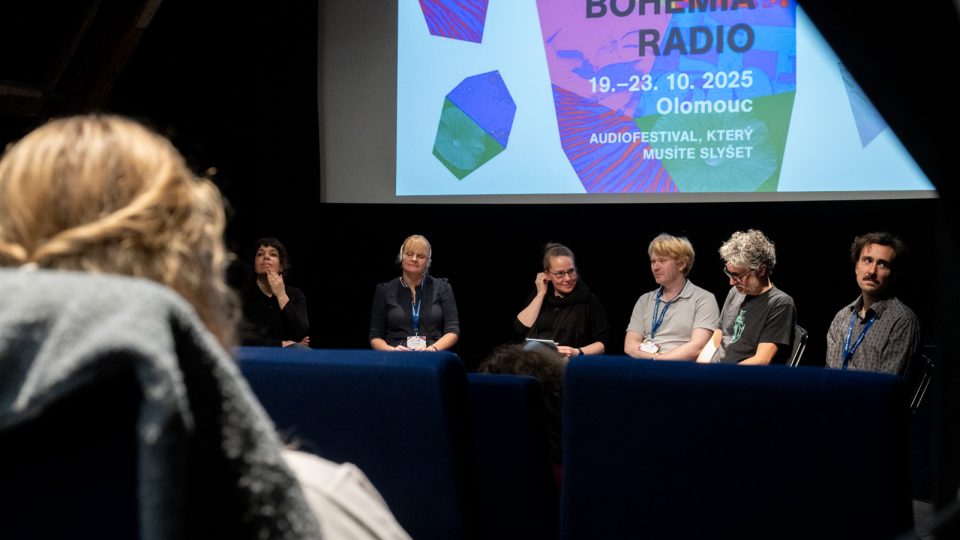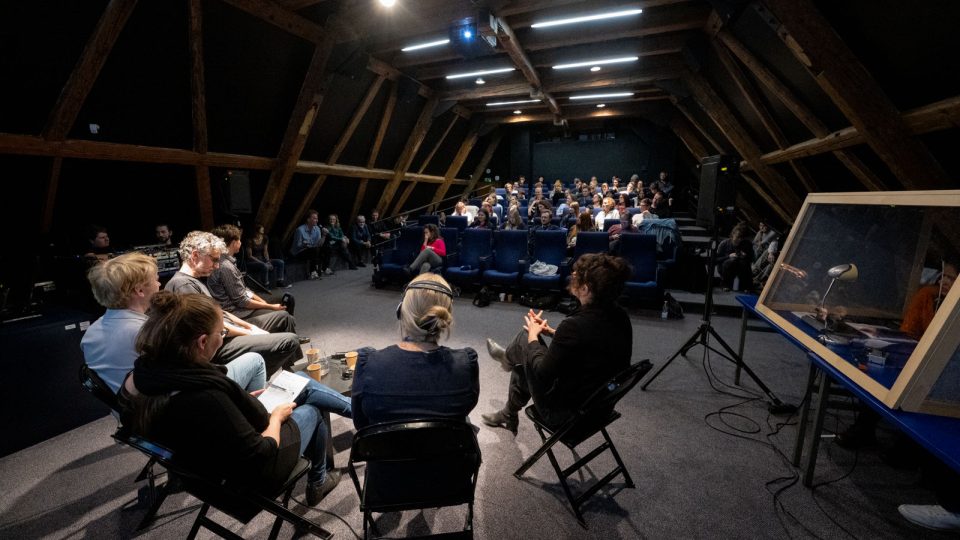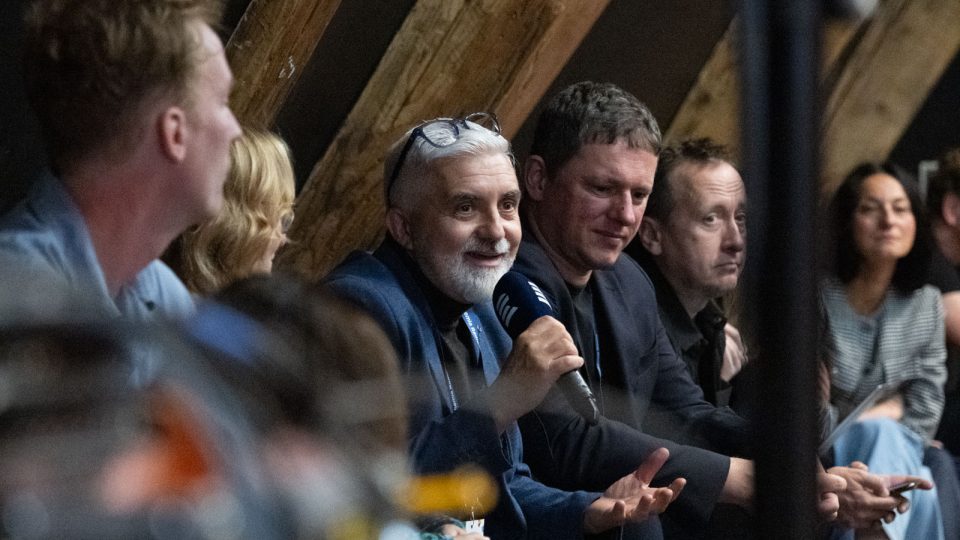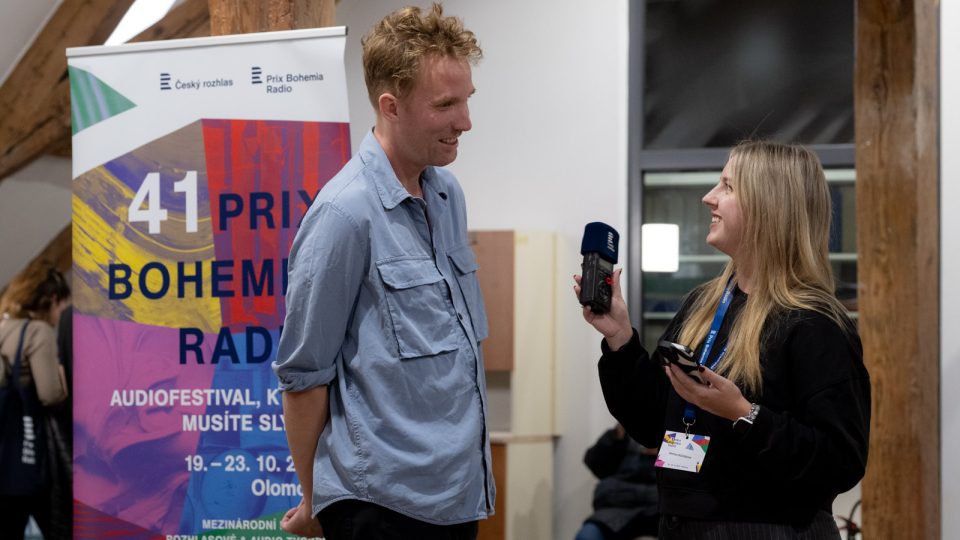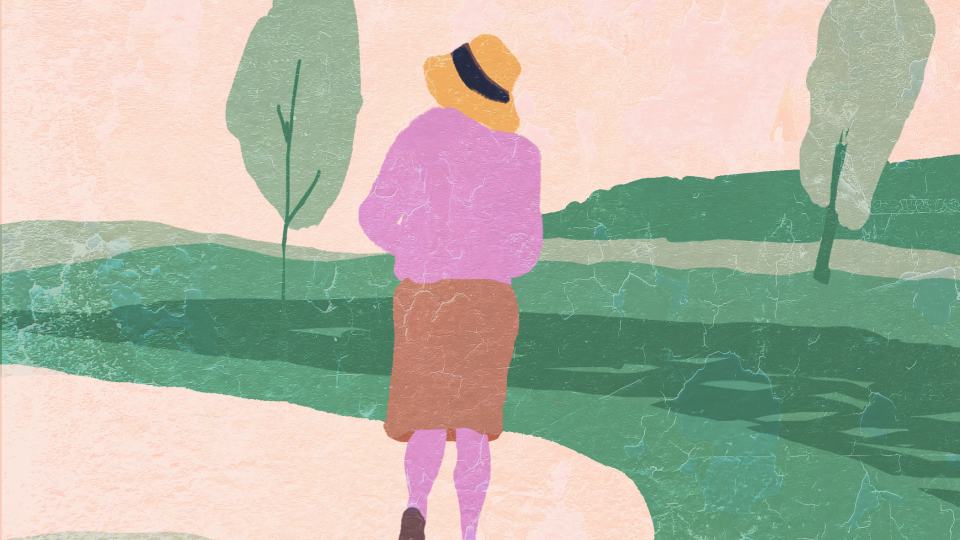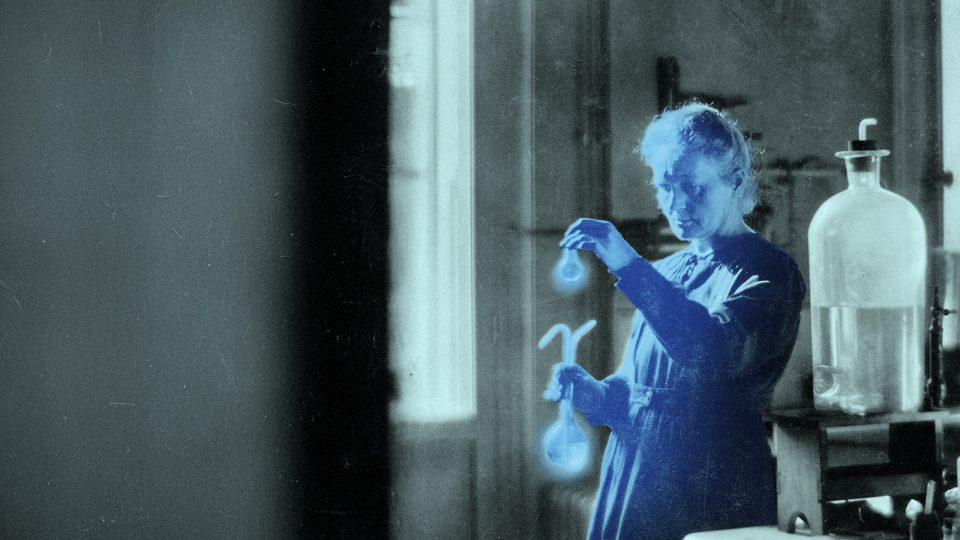Drama Listening Day: War Dialogues, Historical Biography, and a Gangster Comedy
The Drama section of this year’s festival has been exceptionally strong, offering a wide variety of themes and high-quality radio works. Each piece was singular in its approach, offering a different perspective on both form and content in radio drama.
The festival’s Tuesday competition day began in the morning with the presentation of the jury, consisting of musician, sound designer, screenwriter and dramaturge Džian Baban; sound expert Tomáš Oramus; and dramaturge Kateřina Rathouská.
They were joined by Emma Harding, a British writer and sound producer, editor-in-chief for drama, arts, and classical music at BBC Audio Wales and West, and by Katharina Schmitt, a German director, playwright, and author, adding an international dimension to the discussions that followed.
The first piece on programme was Jiří Adámek Austerlitz’s original radio composition Mother of God, Banish Putin. Notable for its singular musical-dramatic structure, it received many positive responses from both jurors and listeners.
Čtěte také
The story follows the protest concert by Russian feminist punk rock band Pussy Riot, as well as the history of Moscow's cathedral and Putin's relationship with the Orthodox Church. The piece resonated strongly with the audience with the play's audio composition and its exceptional sound design being the most appreciated aspects.
Intimacy in the competing works
The second piece in the Drama category was Calls by Viktoriia Kralko. Both the author and Mila, the protagonist in the first episode, portrayed by Anna Marie Fialová, were present in person.
Čtěte také
Through phone calls, text messages, and voice recordings exchanged between Mila and Serhij, the piece captured the onset of the war in Ukraine, particularly in Mariupol.
The jury agreed that this was an exceptionally powerful and authentic work, distinguished above all by its very personal testimony. The recurring word in the judges’ assessments was intimacy, which perfectly captured the spirit of Calls.
Sexist humor?
The afternoon kicked off with the audio comedy series Snowdrops and Gangsters by Tomáš Dianiška and Lenka Veverková. The plot follows two friends who, by chance, come into possession of a large quantity of drugs and attempt to sell them, thus becoming entangled in a conflict between two gangster groups.
Čtěte také
The audience frequently laughed during the listening, yet the jury raised objections – especially about sexist humour and a lack of specificity to the radio medium.
The attending director, Tomáš Dianiška, defended the controversial parts by explaining that his intention was not to endorse sexism, but instead to satirize it and to mock its absurdity. He responded similarly to criticism of stereotyped characters: according to him, the caricatures were deliberate and intended as parody.
Exceptional sound
After a short break, the festival proceeded with a listening of Gratitude. The play explores themes of aphasia, aging, and intergenerational solidarity and it does so with both humour and subtlety.
Čtěte také
Actress Marta Vančurová was singled out by the jury for her outstanding performance, and the Czech translation, from the original French work by Delphine de Vigan, was also praised. The jury noted the naturalness of the acting and the thoughtful direction.
The next competing piece was Radiant Child by Eva Blechová. This play about Marie Curie-Sklodowska combines scientific popularization with historical storytelling of the discovery of radium.
Čtěte také
In the drama, actor Petr Uhlík embodied the newly discovered element. The jury emphasized that the work had already stood out during the initial selection, as it seemed to “radiate” among the 37 submissions. It left a strong impression in the competition round as well, largely due to its remarkable sound design.
At the end of the listening day, the student jury announced their favourite pieces. In third place stood Gratitude, and though the student considered also awarding Snowdrops and Gangsters, they ultimately excluded it from the prize list, saying it lacked a stronger radio-specific identity and felt more suited to another medium. The second place went to Talks, and the top honour of the student jury was awarded to Mother of God, Banish Putin. However, we will have to wait until the grand Prix Bohemia Radio awards ceremony for the expert jury’s decision.
In the programming line-up, themes of war and social conflict resonated strongly, but lighter, more playful works also had their place, boosting the overall diversity of the offerings. This wider creative mix could, in the future, further encourage greater diversity and draw in younger audiences, for whom it would make sense to produce more dramatic works that are approachable in style and language.
The author of the original Czech article is a member of the student editorial board of the Prix Bohemia Radio website.

